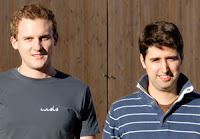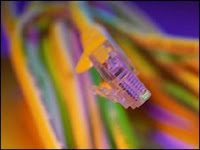 Quantum mechanics may hold the key to a hand-held biology laboratory
Quantum mechanics may hold the key to a hand-held biology laboratory
BIOTECHNOLOGISTS have long dreamed of creating a “lab on a chip” that would pack the power of a full-scale analytical laboratory into an object as small and as easy to use as the hand-held scanners familiar to fans of science fiction. Such a device might detect biological weapons, run genetic tests or sniff out contaminants. Staff at clinics could use it to screen people for infectious diseases. Police could perform on-the-spot drug tests; paramedics, roadside diagnoses.
Many designs have been proposed for such a device, but none has really taken off. The latest, though, sounds promising. It uses a quantum-mechanical effect called giant magnetoresistance (GMR), which is also the basis of a computer’s hard drive. And prototypes made in laboratories in Europe and America have indeed been able to detect everything from deadly toxins to illegal drugs and markers of disease.
Giant magnetoresistance relies on devices called spin valves. These are made by interleaving thin sheets of magnetic and non-magnetic metals to form a sandwich composed of layers mere nanometres (billionths of a metre) thick. If a nanoscale sandwich is exposed to a magnetic field, the quantum spin of its electrons, and thus its electrical resistance, will change in a way that is easily detectable—which is why they are used in the heads of hard-disk readers.
In 1998, however, it occurred to David Baselt of the United States’ Naval Research Laboratory in Washington, DC, that spin valves might also make excellent biosensors. Biological materials themselves are not usually magnetic, but they are often chemically specific. To Dr Baselt this suggested that tiny magnetic particles might be attached to molecules using either antibodies (which will bond to proteins, sugars and so on) or single-stranded DNA (which will bond to a complementary DNA strand to form the famous double helix). To search for a target molecule, then, all that would be needed would be to sprinkle a sample thought to contain it with magnetic nanoparticles coated with the appropriate antibody or DNA and then run it over a spin valve.
A simple idea. It has, though, taken Dr Baselt and his colleagues, along with researchers in several other organisations, ten years to turn his insight into a practical technology. Now that they have, things are about to go mainstream.
Though the details of the prototypes differ, the principles are similar. Both the spin valves and the paraphernalia of channels needed to feed a sample to them are built onto silicon wafers using the same techniques employed to make microprocessors. The wafer is then cut up into chips.
For more on this article, please click on the following link: Spinning a good tale: Economist













































